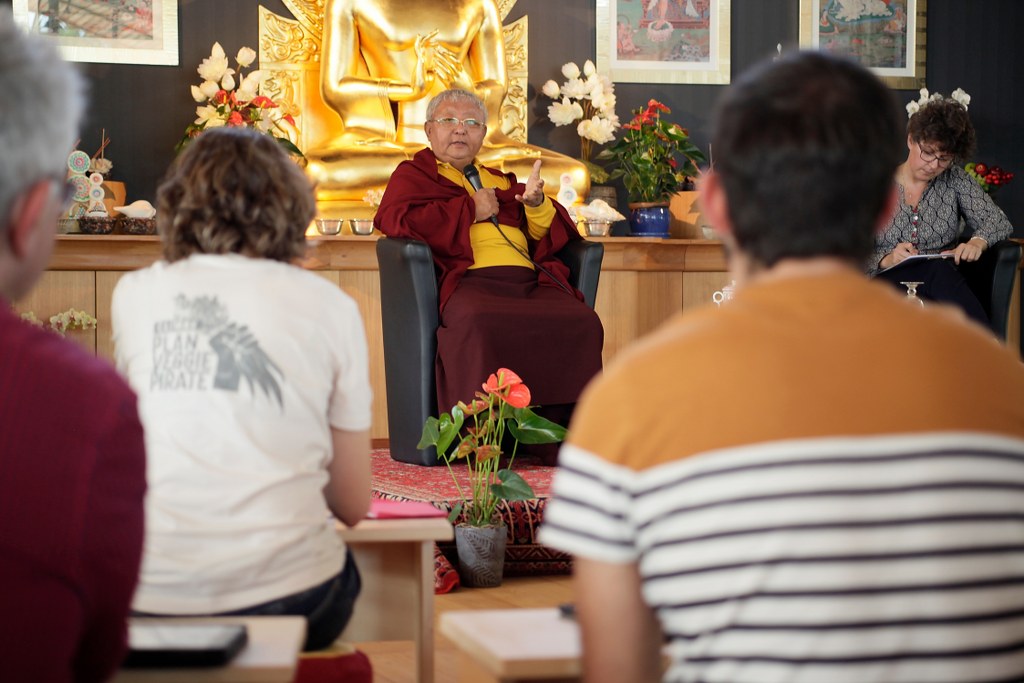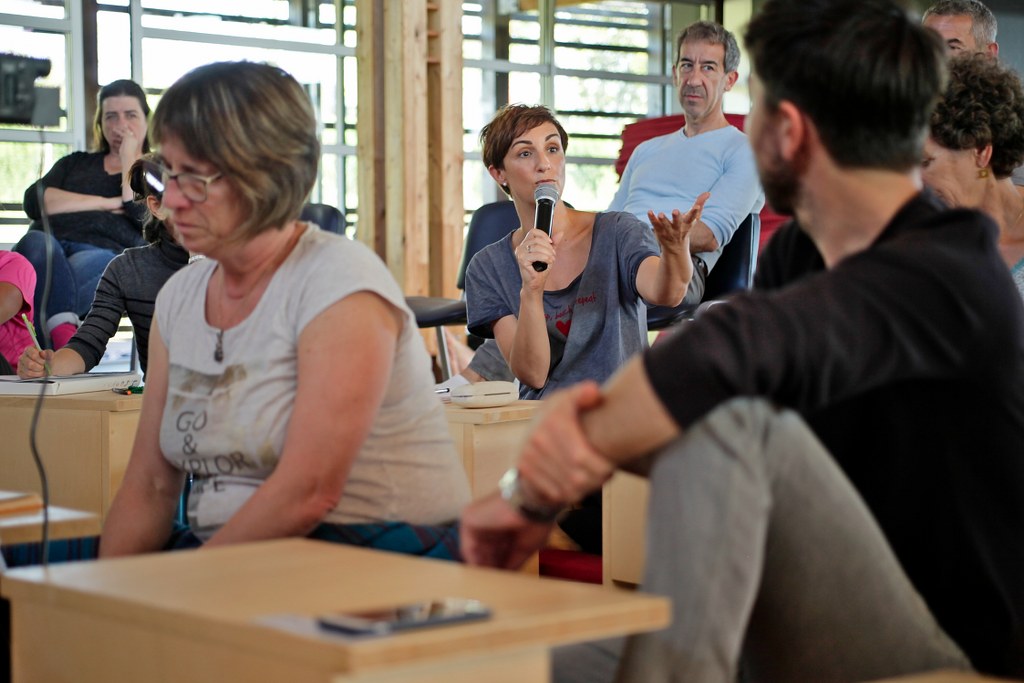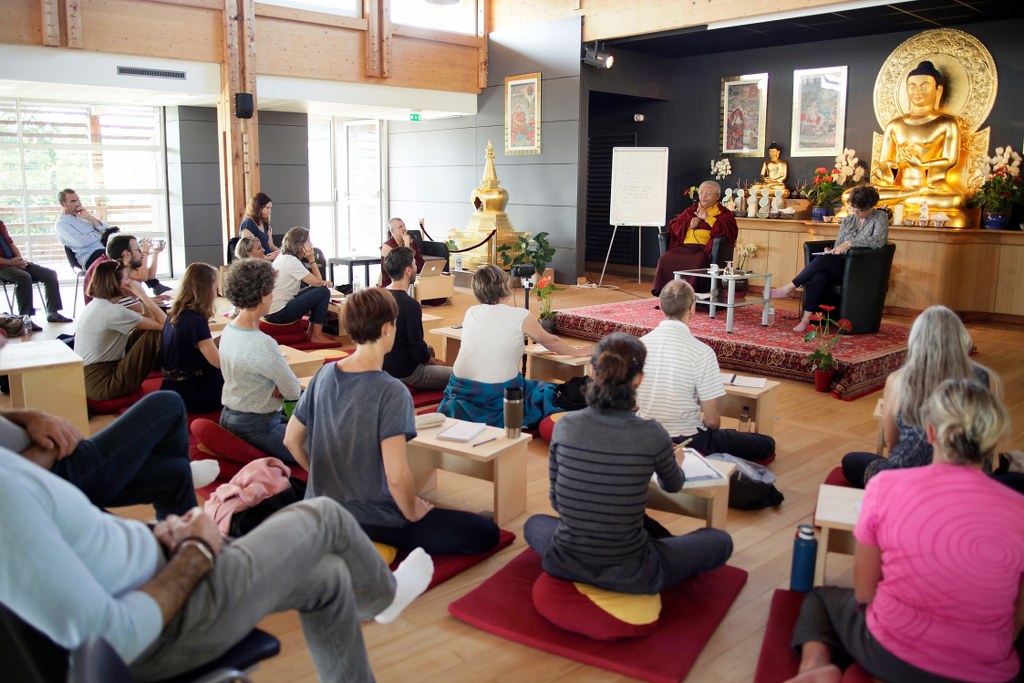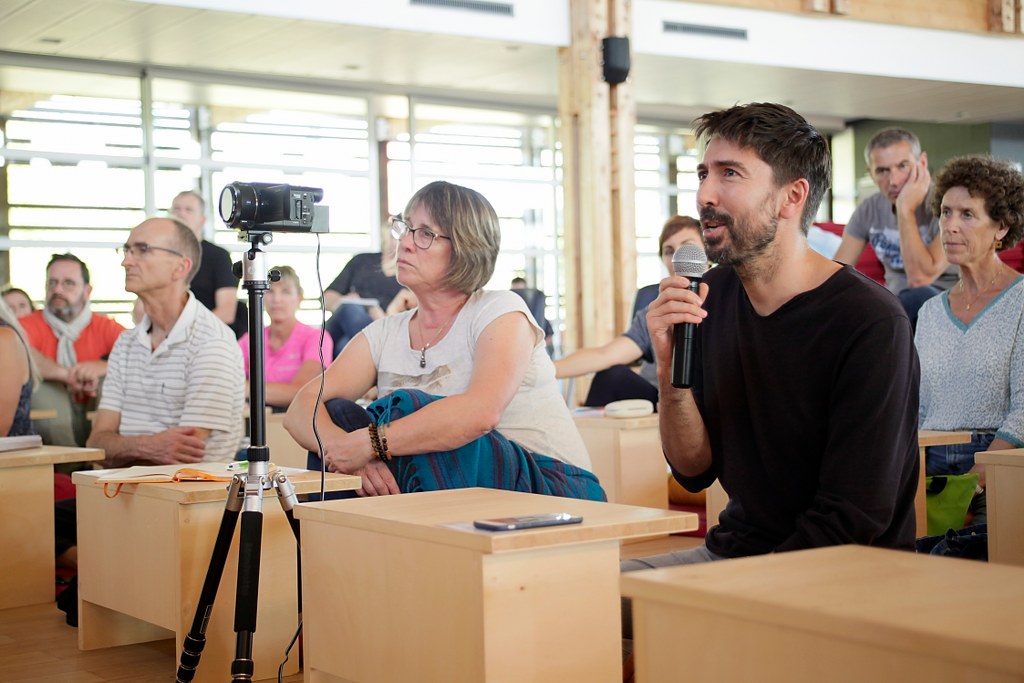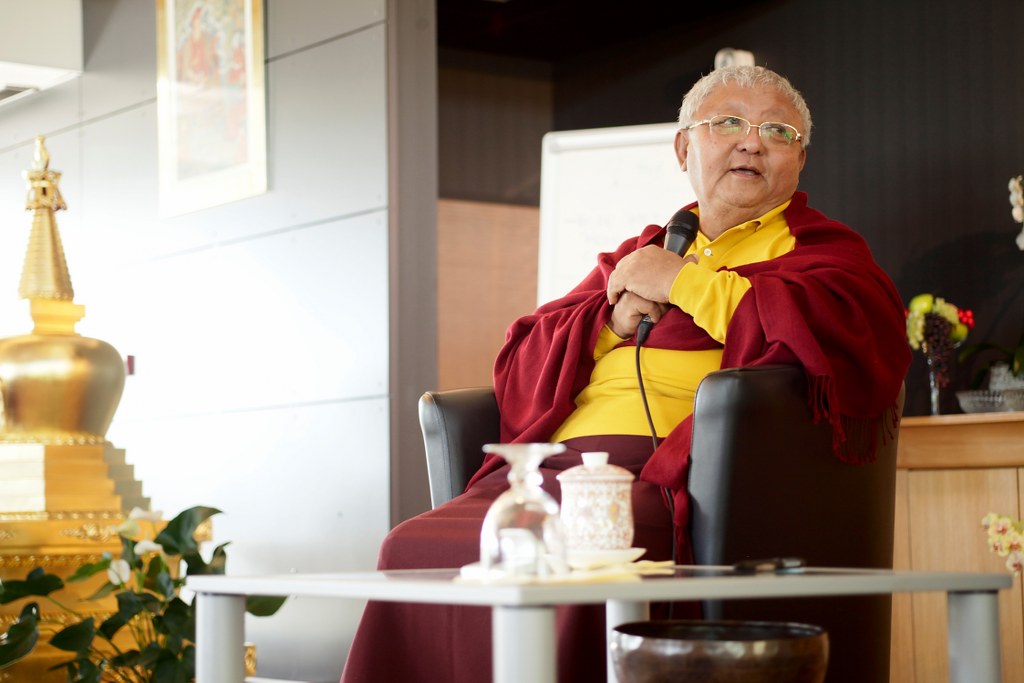The First Buddhism and Professional Life Forum – Some Interesting Leads, Some Resources, and Something Next
Bringing together the understanding and experiences of many different individuals is indeed what took place during the Institute’s first forum dedicate to professional life. Yes, but with what goal? Finding the resources to reply together to the various issues participants were dealing with. Of course, our reference was Buddhist principles. The Dharmanagement group led this weekend for thirty active participants. Dharmanagement? A think tank linked with Dhagpo Bordeaux that has brought together executives and managers for the last five years to rethink their professional activity in light of Buddhist teachings. Their intention is to discover new key ideas for their professional lives.
Jigme Rinpoche gave us material to reflect on. Several times throughout the weekend, he came to answer the questions that came out of our exchanges. As we know, Rinpoche never gives a silver bullet, which is in fact not what we are looking for either. The premise is to follow the leads among our ideas that allow each of us to explore for ourselves an approach that leads to better taking care of ourselves and, in turn, others.
The way of integrating Buddhism into professional life is nonetheless free of ambiguity, “The Buddha’s teaching allows us to cultivate a state of mind and not to change an external system. Each profession has its specificities, its skillsets, and its understanding; the idea is to develop a state of mind nourished by the Dharma and to act based on our professional skills and understanding. There is nothing to transform. Training means progressively integrating kindness, opening ourselves to others’ situations, and practicing not acting out of emotions that arise—this is what allows us to help others, as well as ourselves. These are basic human concepts. Relaxation and meditation help us to apply these things in our daily lives.”
Concerning meditation, it is important not to confuse it with something else. “Meditation gives the mind certain abilities. But when we talk about inner space, it is not a question of being naive. We need to be aware and to look at what is happening in the mind in order to reflect on it. It is by reflecting on our functioning that we find space. We become aware of ourselves and of other’s ways of behaving; slowly, understanding arises, and we can become more open. The space we are talking about is born from understanding, from openness to another person, and to the problems that may arise with them. Meditation gives us profound relaxation and greater clarity. With this relaxation, an ability arises: that of seeing our own emotions. Meditation leads to this, but meditation is not inner space. It acts as a support for cultivating this openness.”
Of course, enlightened mind is the basis for Jigme Rinpoche’s proposed approach. This is what yields the value and the practical, concrete aspect in relation to professional life, “Let’s not think of impermanence as a notion to use. We need to understand it in the important situations that we encounter. This understanding allows us to identify the genesis of suffering in our mind and to dissipate a lot of unhappiness. This is an individual discovery. This is not a rhythm to follow, but an experience to discover within ourselves as it is occurring.”
When bringing up emotions, pride obviously incited questions. “One way of defining pride is the identification with our strengths,” said Rinpoche. “There is general pride that everyone has, regardless of their situation. But there is also pride linked with experience, position, education. This is identification with knowledge we have acquired. This pride allows us to work with our knowledge. It gives us the power to get things done. But, as there is profound identification with ourselves, this influences our communication with others. If we do not understand this pride and its functioning, we run the risk of going in a negative direction, of making mistakes.”
And what about expectations—do we need them or not? “That is up to us to decide. For multiples reasons, there are necessary expectations. We need to reflect and identify the obstacles that these expectations create. On the other hand, some expectations are unimportant. Because of them, everything takes on importance, and we grasp onto it. Once we have identified the appropriate expectations, we act based on them. For this, we need strengths—emotional strength, etc. Our path is made up on defining the concepts that we will adhere to and commit to.”
So, there are a few glimpses of our exchanges. Our fear was leaving things at that—another forum under the belt and on with life! But Rinpoche closed things with an opening, “I am happy that you could get together. This is a good beginning—an exchange of ideas and experiences. You can see in practice whether such an approach has results. It will be like a personal proof upon which each person can develop their path and be beneficial to others.” Indeed, this is just a point of departure. We made a date for a second forum next year. Furthermore, there was a request for occasional weekend meet-ups to be organized at Dhagpo to deepen our exchanges. Beyond Jigme Rinpoche’s input, it was clear that the simple fact of exchanging experience and questions around a common theme while taking Buddhism as a point of reference was a resource in and of itself.
Puntso, head of Dhagpo’s Program
![]() Discover more photos on the Facebook album for this Chronicle
Discover more photos on the Facebook album for this Chronicle

